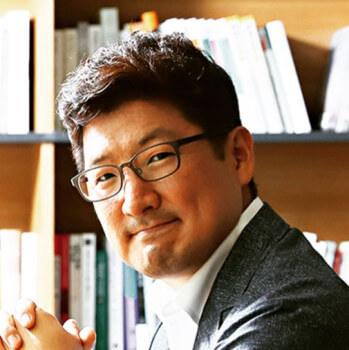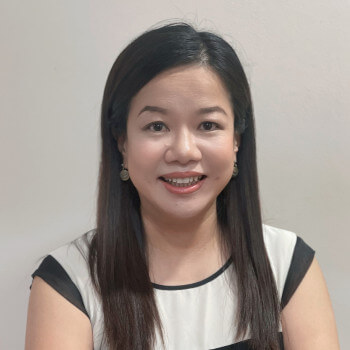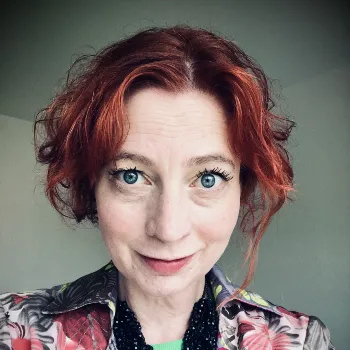LT1 (NS3-02-09) Foyer
Dr Sophia Tan - Head, Centre for Teaching, Learning & Pedagogy
LT1 (NS3-02-09)
Professor Tan Ooi Kiang - Deputy Provost (Education), Nanyang Technological University
LT1 (NS3-02-09)
Professor Ronald Barnett - Emeritus Professor of Higher Education, Institute of Education, University College London
LT1 (NS3-02-09)
Abstract
The university is not just encircled by but is entangled with several major ecosystems of the world and, whether recognized or not, the university is influenced by them and negotiates its way through them. Eight ecosystems stand out in particular, those of the economy, knowledge, social institutions, learning, persons, culture and the natural environment.
The ecological university is a university that takes this ecological setting seriously, and does what it can not just to be sensitive to those eight ecosystems but plays its part in improving each of them - for, being ecosystems, they each fall short of their potential.
It is a matter of judgement for any university as to how it might do this, in its teaching, its research and its engagements with the world. Each university has its own ecological profile – its own possibilities. Discerning its responsibilities and possibilities is not easy – they are not just there but have to be imagined. There is no technological fix before the university.
At present, attention is given primarily to economy as an ecosystem. Some wish to play it up still further (being strong advocates of ‘skills’ for the economy); others - critics of neoliberalism and cognitive capitalism – wish to diminish it, for they believe that there is a neglect of the other (seven) ecosystems. The economy is important but it should not be privileged. Indeed, there is conflict between interests in the economy and in (the sustainability of) Nature.
In my talk, I shall address this situation and share some tentative thoughts as to how steps might be made in realizing the ecological university, with considerations in mind of teaching, learning and the student experience.

LT1 (NS3-02-09) Foyer
Assistant Professor Lisa Winstanley - School of Art, Design and Media, Nanyang Technological University, Singapore
LT1 (NS3-02-09)
Abstract
The concept of rewilding education advocates for the removal of rigid boundaries to cultivate a more organic and interconnected learning environment. Accordingly, this presentation encourages educators to reconsider disciplinary boundaries in order to promote critical thinking and collaborative problem-solving skills. The discussion explores several innovative pedagogical approaches that challenge traditional educational models by emphasising interdisciplinary collaboration through the integration of a Design+ framework:
• Design+ Technology
• Design+ Science
• Design+ Sustainability
These combinations highlight the essential role of design in stimulating innovation in other areas of study by applying a holistic approach to education that has the capacity to address complexities in contemporary global challenges. The presentation will illustrate the practical application of this framework through three case studies focused on each of the three aspects of the Design+ framework: Technology, Science and Sustainability. It will then expand on an empirical research study centred on the sustainability aspect, demonstrating its effectiveness in connecting STEM and art and design curricula.
By exploring the possibilities of interdisciplinary work, the presentation highlights the potential of integrating diverse perspectives into the classroom and reimagining academic structures to create a more interconnected scholarly community. Design+ advocates for breaking down silos, encouraging educators to embrace flexibility and adaptability in their teaching practices. Ultimately, this presentation aims to inspire educators to rethink their pedagogical methods, rewilding the academic ecosystem to one that values collaboration and innovation by aligning educational practices with the demands of a changing world.

Moderator: Dr Sophia Tan - Head, Centre for Teaching, Learning & Pedagogy
LT1 (NS3-02-09)



LT1 (NS3-02-09) Foyer
Parallel Track 1: Education Technology
Venue: The Arc, LHN-TR+14, Level 1
|
Title |
Speaker |
|
Students' appropriation of AI-augmented tool from TVET to NTU contexts |
Dr Kenneth Lim Senior Research Scientist, National Institute of Education (NIE)
Mr Ahmed H Hilmy Project Officer, National Institute of Education (NIE)
Mr Toh Jing Qiang Undergraduate Student, College of Computing and Data Science (CCDS) and Nanyang Business School (NBS), Nanyang Technological University (NTU) |
|
Enhancing Design Thinking Education with AI Generative Tools for Effective Teaching and Learning |
Dr Pui Tze Sian Senior Lecturer, School of Chemistry, Chemical Engineering and Biotechnology (CCEB), Nanyang Technological University (NTU) |
|
AskNarelle - Transforming Student Engagement through LLM-powered Virtual Course Assistant |
Mr Ong Chin Ann Lecturer, College of Computing & Data Science (CCDS), Nanyang Technological University (NTU)
Dr Smitha Senior Lecturer, College of Computing & Data Science (CCDS), Nanyang Technological University (NTU) |
|
Student engagement with a GenAI-Enabled University Writing App |
Dr Joanne Chia Lecturer, School of Humanities (SoH), Nanyang Technological University (NTU)
Dr Angela Frattarola Director and Senior Lecturer, Language and Communication Centre (LCC), School of Humanities (SoH), Nanyang Technological University (NTU) |
Parallel Track 2: Lifelong Learning
Venue: The Arc, LHN-TR+18, Level 1
|
Title |
Speaker |
|
The Role of Personal Epistemology in Driving Lifelong Learning |
Mr Koh Wei Xun PhD student, National Institute of Education (NIE) |
|
Fostering Lifelong Learning on Gen-AI in the Workplace |
Dr Qian Huang Research Fellow, Lee Kuan Yew Centre for Innovative Cities, Singapore University of Technology and Design (SUTD)
Dr Thijs Willems Research Fellow, Lee Kuan Yew Centre for Innovative Cities, Singapore University of Technology and Design (SUTD)
Mr Poon King Wang Research Fellow, Lee Kuan Yew Centre for Innovative Cities, Singapore University of Technology and Design (SUTD) |
|
Integrating HIEPs for Sustainable Assessments and Lifelong Learning |
Dr Subashini K Rajanthran Head, The Learning Centre, LASALLE College of the Arts |
Parallel Track 3: Pedagogical Practices
Venue: The Arc, LHN-TR+30, Level 1
|
Title |
Speaker |
|
Linking Critical Thinking Dispositions to Success in Interdisciplinary Collaborative Learning |
Dr Le Chencheng Lecturer, Asian School of the Environment (ASE), Nanyang Technological University (NTU)
Ms Guo Su PhD student, National Institute of Education (NIE)
Dr Chen Wenli Head of the Learning Sciences and Assessment (LSA), National Institute of Education (NIE) |
|
ChatGPT Enhances Critical and Creative Thinking in Students' Group Projects |
Dr Alexander Lin Senior Lecturer, National University of Singapore (NUS) |
|
Design Principles-based Activities to Enhance Undergraduates’ Interdisciplinary Learning |
Dr Zhu Gaoxia Assistant Professor, Learning Sciences and Assessment (LSA), National Institute of Education (NIE) |
*For the workshops, please register at the counter in the morning before the conference begins.
Professor David Boud - Deakin Distinguished Professor and Foundation Director of the Centre for Research in Assessment and Digital Learning, Deakin University
The Arc, LHN-TR+14, Level 1
Abstract
Providing information to students on their work is a familiar and well-accepted practice in university courses. For many years, the focus has been on improving the quality of what is provided to students. However, we know that many students who need it most don’t bother to access this potentially useful information. Over the past decade there has been a substantial shift in what feedback means and how it can be organised. What if the emphasis was on what students did in feedback processes rather than on the inputs provided by teachers? How can we design courses in ways that make feedback processes work to improve learning? This workshop will explore recent changes in feedback thinking and how the idea that feedback is at the service of learning has been reclaimed. It will examine implications for practice and explore how teachers have new, but not more time-consuming, roles in design and building learners’ feedback literacy.

Dr Sophia Tan - Head, Centre for Teaching, Learning & Pedagogy
LT1 (NS3-02-09)
Professor David Boud - Deakin Distinguished Professor and Foundation Director of the Centre for Research in Assessment and Digital Learning, Deakin University
LT1 (NS3-02-09)
Abstract
Higher education has become more systematic and more regulated as it seeks to assure that all students reach desired learning outcomes. It is easy in such a climate to assume that the more we regulate students, the better will these outcomes be met. There is a paradox this this however: it does not follow that the more teachers do, the more students achieve. As only the learners can learn, the challenge we face it how to create the conditions in which this can occur. The emphasis in courses must shift from external regulation to self-regulation, the most important aspect of which is the development of students’ evaluative judgement, that is the ability of students to determine what they know and don’t know, and what they can do and not do. The significance of this has accelerated with the widespread introduction of generative AI applications throughout society—refining student judgement becomes more vital than ever.

LT1 (NS3-02-09) Foyer
Associate Professor Chua Bee Leng - Chief Learning and Innovations Officer, National Institute of Education
LT1 (NS3-02-09)
Abstract
With the affordances of rapidly-developing technology, information is now readily and conveniently accessible regardless of time or place. Within this backdrop of information inundation, learning has pivoted away from knowledge-acquisition, instead greatly emphasising the development of skills, dispositions and competencies enabling learners to build meaningful connections to existing knowledge. Furthermore, today's learners must make connections between perspectives of self and others, differing contexts and meta-awareness, therein reflecting upon and constantly refining their own learning.
This sharing will focus on the role of the Digital Portfolio as a powerful and dynamic tool for teachers to aggregate and integrate their learning, making their processes of learning and inquiry visible and intentional as they chart their professional development throughout their teaching journey, starting with their time in NIE. The portfolio enables structured and guided inquiry into practice, ease of collaboration and sharing, and serves as a library of resources and inspiration for teachers as they strive for continued development in their careers.
Moderator: Dr Sophia Tan - Head, Centre for Teaching, Learning & Pedagogy
LT1 (NS3-02-09)


LT1 (NS3-02-09) Foyer
*For the workshops, please register at the counter in the morning before the conference begins.
Professor Ronald Barnett - Emeritus Professor of Higher Education, Institute of Education, University College London
The Arc, LHN-TR+14, Level 1
Abstract
What is it to effect change in higher education? Are we rushing to change systems and processes without thinking them through?
For example:-
- The use of AI and Chatbot-type engines: many universities are embracing AI enthusiastically – but suppose there are grave risks here? There are many concerns in the literature about AI but are universities aware of those concerns? Are they addressing those concerns?
(When I receive a PhD thesis to examine, I have no way of knowing whether and the extent what I see before me has been generated by AI. But this is only one difficulty here.)
- What of critical thinking? Do we still prize it in higher education? What does it mean? How might it be a more prominent part of a student’s higher education? What kind of pedagogy does it call for? What kind of student experience does it imply?
- Some speak of learning for an unknown future but if the future isn’t known, how are we to prepare students for it? Does it call for a different curriculum or more fundamental changes – eg abandoning ‘teaching’ and ‘learning’? Again, what kind of student experience is necessary (for ‘learning for an unknown future’)?
- In my keynote, I speak of ‘realizing the ecological university’ – but just how might that be brought about (and across the eight ecosystems that I identify – knowledge, learning, the individual, culture, society, the economy, the polity and Nature). Is the ecological university just a utopia – OR is it a feasible utopia?
So before welcoming change, or at least alongside it, we may need to address our thinking on a matter. Fundamental change in higher education calls for fundamental thinking.
But what is it seriously to think in fundamental ways about our practices and policies in higher education – and to ensure that our practices and policies are imbued with that more fundamental thinking? So we need fundamental thinking about both:
- the matter in front of us AND about
- the change processes needed to do justice to that thinking.
Do we have space and time to think in higher education today? Can we make space to think?
I propose that, in this workshop, we work concretely on the four issues above and identity:
(a) key ideas, concerns, issues and even conflicts in each case and
(b) ways of doing justice to those ideas, concerns, issues and conflicts in our change processes; and change processes at the levels both of the university and the student experience.

The Arc, LHN-TR+30, Level 1
